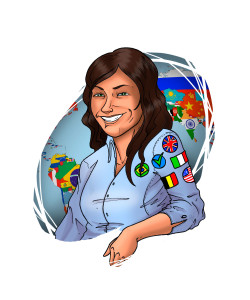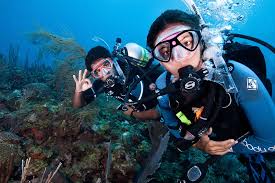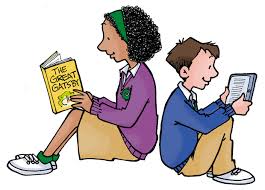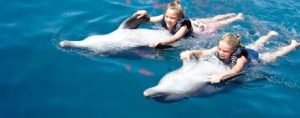 Rentrée scolaire réussie grâce à notre blog de soutien scolaire en ligne. Valérie vous propose ce quiz niveau 4ème 3ème en anglais. Have a good luck!
Rentrée scolaire réussie grâce à notre blog de soutien scolaire en ligne. Valérie vous propose ce quiz niveau 4ème 3ème en anglais. Have a good luck!
1. How would you describe this avatar?
Comment décrirais-tu cet avatar?
- A. She has long blond hair, big yellow eyes and she looks sad
- B. She has straight brown hair, big yellow eyes and she looks happy
- C. She has long brown hair, big yellow eyes and she looks sad
2. Can you match the pictures and the sentences and say whether they like the hobby (Y) or don’t (N) or (DK) don’t know?
Peux-tu relier les photos et les phrases et dire s’ils aiment le hobby (Y) oui ou (N) non ou (DK) on ne sait pas.
A. I love reading.
B. Do you enjoy paragliding?
C. She doesn’t like scuba diving
D. They are keen on swimming with dolphins.
E. He is crazy about video games.
F. I can’t bear mountain climbing
 |
 |
|||
| 1. | 2. | |||
 |
 |
|||
| 3. | 4. | |||
 |
 |
|||
| 5. | 6. | |||
3. Tell a story in the past: Irish legend. Fill in the blanks with the verb in the preterit.
Raconte une histoire au passé. Remplis les blancs avec le verbe au preterit.
In Irish folklore, a long time ago, the dullahan ……………………..(to be) a headless horseman who ………………………..(to ride) at night. His black horse ………………………………..(to send) flames out of its nostrils. The dullahan …………………………..(to carry) his head with him, sometimes on the saddle of his horse or in his right hand. His eyes ………………………………..(to be) small and black and they …………………….. (to move) about like flies.
The entire head …………………………… (to shine) in the dark, so the creature…………………………. (to use) it as a lantern to guide its way along the darkened roads of the Irish countryside.
Everywhere the dullahan ………………………………. (to stop), a mortal …………………….(to die)! But there …………………( to be) a way to stay alive: showing him gold. Even a simple coin …………………………. (to frighten) him away!
4. Biography: match up questions and answers.
Biographie: relie questions et réponses
| Questions | Answers |
| 1. Who did he marry? | a. He died on the 10th June 2004. |
| 2. When did he die? | b. He released more than 60 albums. |
| 3. When and where was he born? | c. That’s the year when he recorded “Georgia on my mind”. |
| 4. How many children did he have? | d. He was born on the 23rd September 1930 in Georgia. |
| 5. How many albums did he release? | e. He had 12 children. |
| 6. What happened in 1960? | f. He married Eileen Williams and Delia Robinson. |
| 7. Who is he? | g. His name is Ray Charles. |
5. Preterit in Be+BV+ing: Can you translate the following sentences into French?
Prétérit en Be + BV + ing: Peux tu-traduire ces phrases en français ?
- A. I was cooking when she arrived.
- B. They were playing cards when the phone rang.
- C. What were you doing yesterday when I phoned you?
- D. He was working in the garden when it started raining.
- E. She was looking at her mobile phone when the blue car ran her over.
6. Comparatives and superlatives: Can you correct the mistakes in the following sentences like in the example:
Comparatifs et superlatives: peux-tu corriger les erreurs dans les phrases suivantes comme dans l’exemple ?
Ex: The film is more funny than the book>>>> FUNNIER
A. This book is interestinger than my homework
B. My brother is more bad at tennis than me.
C. My phone is most expensive thing I have.
D. The cheetah is the most fast animal.
E. The blue whale is the most heaviest animal.
F. My sister is more tall than me.
H. Her house is the most big in the street.
I. Children are most generous than adults.
7. ‘Can’ and ‘Must’. Use ‘ I can’, I can’t’ or ‘I must’, I mustn’t’, ‘you can’, ‘you can’t’, ‘you must’, ‘you mustn’t’ . Careful, you may have to ask a question.
‘Pouvoir’,& ‘devoir’ . Utilise ‘Je peux’, ‘je ne peux pas’ ou ‘je dois’, ‘je ne dois pas’, ‘tu peux’, ‘tu ne peux pas’, ‘tu dois’, tu ne dois pas’. Attention, il est possible que tu doives poser des questions.
- A. I feel sick. …………….. go o the nurse, please?
- B. ……………….see the TV. ………………….move to the left please?
- C. It is too hot. ………………..open the window please?
- D, The paint is not dry. ……………………touch it.
- E. ………………………….ask for some explanation: I don’t understand the lesson .
- F. ……………………. get up early, your plane for New York leaves at 6 in the morning
8- The future tense: avec “will +BV” et avec “be going to+ BV” Make sentence choosing an option from the first column and one from the second.
Révision anglais autour du futur: avec “will +BV” et avec “be going to+ BV”. Fais des phrases en choisissant une option de la 1ère colonne et une option de la 2ème colonne.
| 1. When I am rich, | a. so he will ask for an explanation |
| 2. He didn’t understand, | b. so he is going to come to the cinema with us |
| 3. He is free this evening, | c. it is written down in her agenda |
| 4. She won’t arrive before 8: | d. I will buy a big house |
| 5. The Queen will inaugurate the new building tomorrow; | e. are you going to play tennis with us tomorrow? |
| 6. You like sports; | f. her train is delayed |
Solutions à ce quiz spécial soutien scolaire anglais
Question 1.
C. She has long brown hair, big yellow eyes and she looks sad
Question 2.
1. C. No
2. B. I don’t know
3. E. Yes
4. A. Yes
5. F. No
6. D. Yez
Question 3.
In Irish folklore, a long time ago, the dullahan was (to be) a
headless horseman who rode (to ride) at night. His black horse sent (to send) flames out of its nostrils. The dullahan carried (to carry) his head with him, sometimes on the saddle of his horse or in his right hand. His eyes were (to be) small and black and they moved (to move) about like flies.
The entire head shone (to shine) in the dark, so the creature used (to use) it as a lantern to guide its way along the darkened roads of the Irish countryside.
Everywhere the dullahan stopped (to stop), a mortal died (to die)! But there was (to be) a way to stay alive: showing him gold. Even a simple coin frightened (to frighten) him away!
Question 4.
1/ f.
2/ a.
3/ d.
4/ e.
5/ b.
6/ c.
7/ g.
Question 5.
- A. Je cuisinais quand elle est arrivée.
- B. Ils jouaient aux cartes quand le téléphone a sonné.
- C. Que faisais-tu hier quand j’ai téléphoné?
- D. Il travaillait dans le jardin quand il a commencé à pleuvoir.
- E. Elle regardait son portable quand la voiture bleue l’a renversée.
Question 6.
- A. This book is interestinger than my homework >>>> more interesting
- B. My brother is more bad at tennis than me. >>>> worse
- C. My phone is most expensive thing I have. >>>> the most expensive
- D. The cheetah is the most fast animal.>>>> the fastest
- E. The blue whale is the most heaviest animal.>>>> the heaviest
- F. My sister is more tall than me. >>> taller
- G. Her house is the most big in the street.>>>> the biggest
- H. Children are most generous than adults. >>> more generous
Question 7.
- I feel sick. Can I go o the nurse, please?
- I can’t see the TV. Can you move to the left please?
c. It is too hot. Can I open the window please? - The paint is not dry. You mustn’t touch it.
- I must ask for some explanation: I don’t understand the lesson.
- You must get up early, your plane for New York leaves at 6 in the morning.
Question 8.
1/ d.
2/ a.
3/ b.
4/ f.
5/ c.
6/ e.





Répondre
Want to join the discussion?Feel free to contribute!